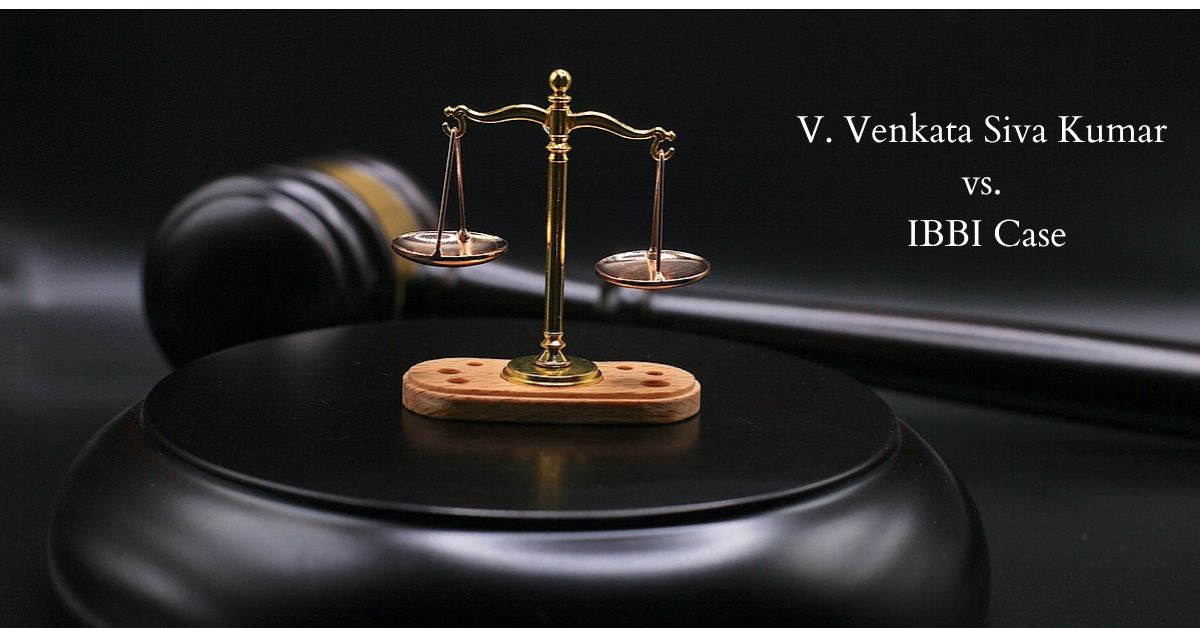Introduction
The case of V. Venkata Siva Kumar vs. Insolvency and Bankruptcy Board of India (IBBI) is a landmark judgment by the Madras High Court that addresses key issues surrounding the scope of the IBBI’s jurisdiction over insolvency professionals. This article provides a comprehensive overview of the case, the legal framework, the court’s judgment, and its implications.
The Scheme of the Insolvency and Bankruptcy Code (IBC)
Under the scheme of the IBC, once an insolvency petition is admitted by the Adjudicating Authority, it appoints an Interim Resolution Professional (IRP). Once the IRP completes their responsibilities, the matter progresses to the next stage where a Resolution Professional takes over. The IBC authorizes the Resolution Professional to share certain information, as listed in Regulation 36 of the IBBI (Insolvency Resolution Process for Corporate Persons) Regulations, 2016. The objective at this point is to explore the possibility of evolving a resolution scheme for the Corporate Debtor (CD) facing insolvency.
If the resolution fails within the statutory time stipulated, then under Section 33 of the IBC, the Adjudicating Authority (NCLT) is required to proceed for liquidation of the CD. In this case, the resolution failed, and the NCLT initiated the liquidation proceedings of the CD. The NCLT appointed the Resolution Professional himself as the liquidator. Therefore, the process and procedure for liquidation of a CD are not exclusive to the domain of the Companies Act but are also contemplated within the IBC.
Liquidator’s Role: IBBI Confidentiality Measures
A liquidator appointed by the Adjudicating Authority in corporate insolvency proceedings is governed by the IBBI (Insolvency Resolution Process for Corporate Persons) Regulations, 2016. Regulation 34(5) requires the liquidator to prepare an asset memorandum, which includes valuing the asset of the corporate debtors. This information can only be shared with the Board and the Stakeholder’s Consultation Committee (a body of corporate creditors constituted under Regulation 31A). However, it does not appear to authorize the liquidator to share the asset memorandum with potential purchasers of the corporate assets of the CD.
This indicates that the IBC and the Regulations made thereunder aim to protect the information leak on the valuation of the corporate assets both by the Resolution Professional or by the liquidator, even though they may have a role at different stages of a corporate insolvency proceeding.
Jurisdiction of the IBBI
The next point is whether the IBBI has jurisdiction to initiate a disciplinary action under Section 218 of the IBC. The petitioner contends that the same complaint was rejected by the Indian Institute of Insolvency Professionals of ICAI (IIIP of ICAI), of which the petitioner is a member. The petitioner was also under a direction by the NCLT to explore a compromise under Section 230 of the Companies Act.
As explained earlier, liquidation of a CD is not alien to the scheme of the IBC. Regulation 2B of the IBBI (Insolvency Resolution Process for Corporate Persons) Regulations enables reading Section 230 of the Companies Act into it. Therefore, merely because the petitioner was directed to perform a role by the NCLT, it does not exempt him from the jurisdiction of the IBBI.
The Court’s Judgment
The Madras High Court, in its judgment, considered that a prima facie ground is available for the IBBI to issue the show cause notice, as the petitioner admitted that he had shared the valuation report of the CD.
IBBI Jurisdiction: Key Takeaways from Madras High Court’s Conclusion
The judgment of the Madras High Court in the case of V. Venkata Siva Kumar vs. IBBI is a significant development in the insolvency law landscape in India. It clarifies the jurisdictional boundaries of the IBBI and sets a precedent for future cases involving the regulatory oversight of insolvency professionals. The case underscores the complex interplay between different roles within insolvency proceedings and the extent of regulatory oversight by bodies like the IBBI.














